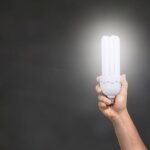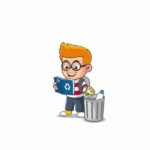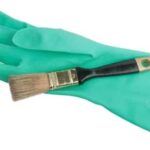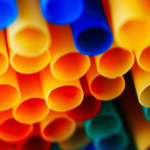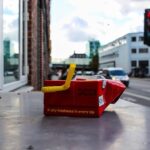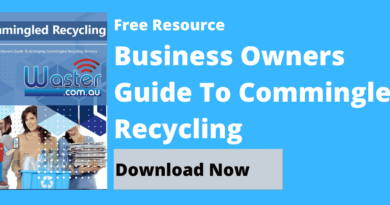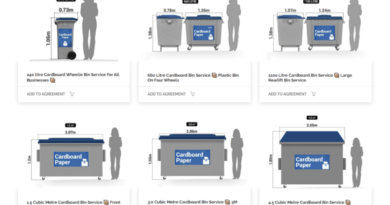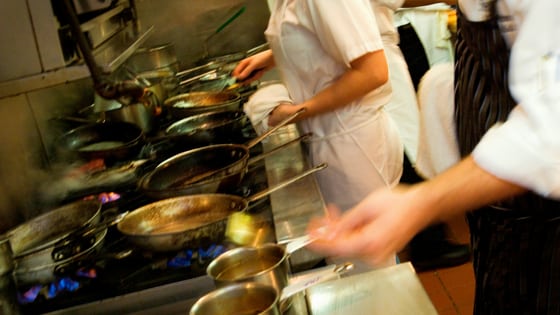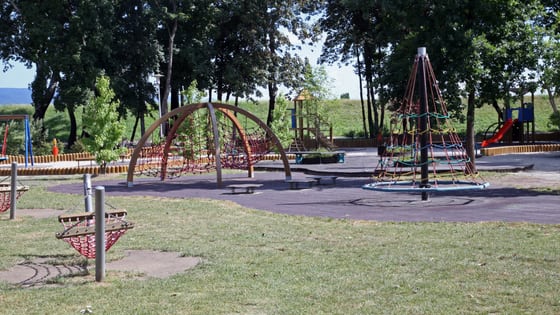Wash Containers Before Recycling 💧🍾 – Rinse And Recycle
Energy Disrupter
Wash Containers Before Recycling 💧🍾: If you’ve dedicated yourself to recycling, I truly applaud your efforts and hope you continue what you do. But are you doing it right? One question they always ask us here is how clean must the containers be before wheeling them out of the house and putting them on the kerbside for collection and recycling. Honestly, I find this tricky enough but nonetheless will still discuss it with you.
>Download Now: Free PDF Business Owners Guide To Commingled Recycling Bin Services
A bit about Waster
Before we continue our topic on washing containers before recycling, let me share more information about Waster.
We here at Waster provide you with innovative solutions for your and your business’s waste management and recycling needs. Additionally, we provide flexible, 30-day contracts instead of the typical lock-in contracts, which proves to be better.
Click on the blue button to learn more.
Is rinsing bottles before recycling really necessary?
You might have heard from your local council or read on some websites that washing your containers before recycling is the way to go. You don’t need to rinse it with a bar of soap and sponge; washing it with water will suffice.
To elaborate, if you read the news on the internet or any other type of platform, you should know that you do not necessarily need to rinse your bottles squeaky-clean before recycling like some of you might do. Essentially, it just has to be dry and empty.
It’s a different ball game if your bottles for recycling are chock-full of residue still inside. You would not want to send your soft drink bottle for recycling full (or half-full, it does not matter, you should still empty it) of fizzling soda, right?
Another problem we encounter is the ongoing confusion of Australians in recycling. A study even revealed that 94 per cent of Australians mess up their recycling. The article stated:
- 36% incorrectly putting plastic bags and soft plastics in their household recycling bin.
- 58% failing to remove leftover food from pizza boxes before recycling.
- 73% not flattening egg cartons before putting them in their recycling bin.
- 82% incorrectly assuming the Mobius loop, or chasing arrows logo on plastic packaging means it is recyclable.
Waste of energy and resources
Aside from it being non-compulsory, washing your already clean and dry containers before recycling also wastes a lot of energy and resources, depending on the number of bottles you wish to recycle. By rinsing your bottles before the collection and recycling process, you waste a huge amount of water and time.
What needs to be done?
For starters, just make sure you empty your bottles; no need to wash them with soap before recycling. One thing you could also do is absorb everything about recycling. Know what to and not to recycle. One thing is for sure, having correct and clear information is very much important. An example is stated via The Conversation, which said:
One example is plastic shopping bags, which many supermarkets urge their customers to recycle by placing them in dedicated bins on the shop premises. But this might prompt shoppers to think that plastic bags can be recycled in their kerbside collection too, which is typically not the case. And, as we saw above, relatively few householders check their local council’s website for the right information.
No need to wash your containers before recycling, but you can do this
To reduce waste and the use of natural resources, we must make sure to properly segregate recyclable items. Choose the correct bin to put your recyclable items in. In this case, many types of bottles go into the yellow bin. Items going into the yellow bin include:
- Aluminium cans and lids
- Steel cans and lids
- Aerosol cans – see our blog on spray paint recycling
- Glass bottles and jars – separate the metal lids
- Plastic bottles
- Milk and juice cartons
- Egg cartons
- Envelopes
- Newspaper and magazines – read our blog and see if you can recycle magazines with staples
Correspondingly, here are some examples of items you should not put in the yellow bin:
- Plastic bags
- Soft Plastics
- Polystyrene
- Light globes, mirrors and window glass
- Nappies
- Tissues
- Mixed materials
What if you do need to wash it?
As mentioned above, you will need to thoroughly wash some items with residue left. Although we have stated that you do not need to wash containers before recycling, that is only if it is already clean and dry from the start. Recycling facilities will not accept containers with residue due to the fact that it can jeopardise and ruin a batch of recyclables.
Recyclable bottles, cans, and jars of all types
Containers like bottles, cans, and jars will usually have residue left after consumption. Before chucking them down the bin, give them a little bit of cleaning first. No need to take out your liquid soap and sponge to clean these containers. Filling them with water and shaking the containers will do just fine.
After that, make sure the bottles, cans, and jars have no signs of the residue left inside. Let them dry before finally disposing of them in the recycling bin.
Conversely, if the residue left inside of those containers are a bit sticky like those of caramel candies, tropical mangoes, or gum, then that is a different story. Bust out the dish soap and sponge and start rinsing the containers thoroughly!
You also have to make sure to check if the residue is no more in the containers. After that, let them dry and throw them in the bin.
How about washing paper product containers before recycling?
Take out food like pizza, onion rings, burgers, and doughnuts are usually packaged in paper and cardboard boxes. And, as we all know, materials made of paper and cardboard are very much recyclable. However, is this still the case with greasy oils sticking in the boxes due to the said foods?
The answer is typically no. As much as possible, do not bother washing food box or containers, much less recycle them. However, note that in some places in Australia such as Onkaparinga, Adelaide, you can recycle your pizza boxes, with or without grease. The same goes for other types of paper packaging with greasy food like fish and chips. Just make sure to clear out the food contents. In the case that the food is stuck to the packaging, it is best to put it in the organic waste bin.
[embedded content]
If your paper and cardboard materials do not have grease on them, then better! You can go ahead and just clean out the contents before recycling. Broken down or not, clean paper and cardboard are still pretty much recyclable.
Plastic containers
What about plastic bags? Should we be washing these type of containers before recycling them?
You can also lump them in with bottles, cans, and jars. Clear the contents before chucking them in the bin. If in case the plastics were used to store food or the likes, then rinsing the recyclables is best. After that, make sure not to dispose of them when wet. Let them dry first before their disposal.
Always remember to let all the mentioned above dry as it might ruin the recycling process in the facilities.
It’s all about balance, after all
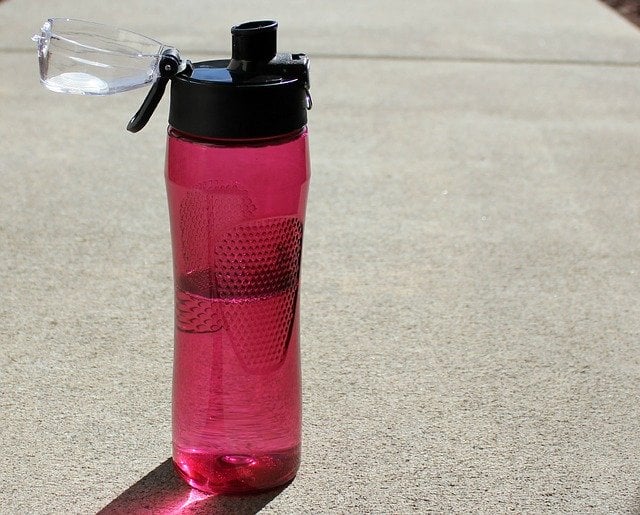

Washing containers before recycling might be a good idea for you, but for some, it is not. This is also the same with the debate whether it is much better to use reusable or disposable cups or bottles. This article I read might prove us wrong in thinking that reusable bottles are a better option than disposable ones. They cited an excerpt from an interesting book named “Green Washing: Why We Can’t Buy Our Way to a Green Planet” by author Kendra Pierre-Louis which specifically states that:
“Despite the fact that Sigg boasts of the recyclability of their aluminum water bottles – and to be clear, aluminum is completely recyclable – their bottles are made from 100 per cent virgin aluminum. Consequently, each 150 gram, 1 liter Sigg bottle releases roughly .77 pounds of carbon before it’s even left the aluminium smelter.
“In fact, a 1999 MIT study showed that producing one ton of virgin aluminum generates approximately 10 times more carbon dioxide than the production of a ton of steel. Recycled aluminum by contrast would only utilize 5 per cent of the energy that virgin aluminium does.”
What it means is that in creating reusable bottles, many raw and virgin materials are consumed.
It is important to note that it should really be all about balance. Maybe using recycled aluminium might prove to be better than using virgin ones. Additionally, we also have to factor in the carbon emissions that are offset when producing these reusable water bottles.

Wash containers before recycling: conclusion
The main point here is you do not need to wash your containers before sending them to recyclers for recycling if they are already dry and clean. This practice wastes the already depleting reusable energy and resources that we have today. Only wash containers if they still contain residue inside before recycling them. All we need to be is more environmentally aware, and that will push the Earth and us into a much better situation.
Waster: things you need to know
If you’re looking for recycling bins, check our waste recycling shop and find the best deals in terms of pricing and services.
Also, please call 1300 WASTER (1300 927 837), or email us at [email protected] if you have any further questions.


